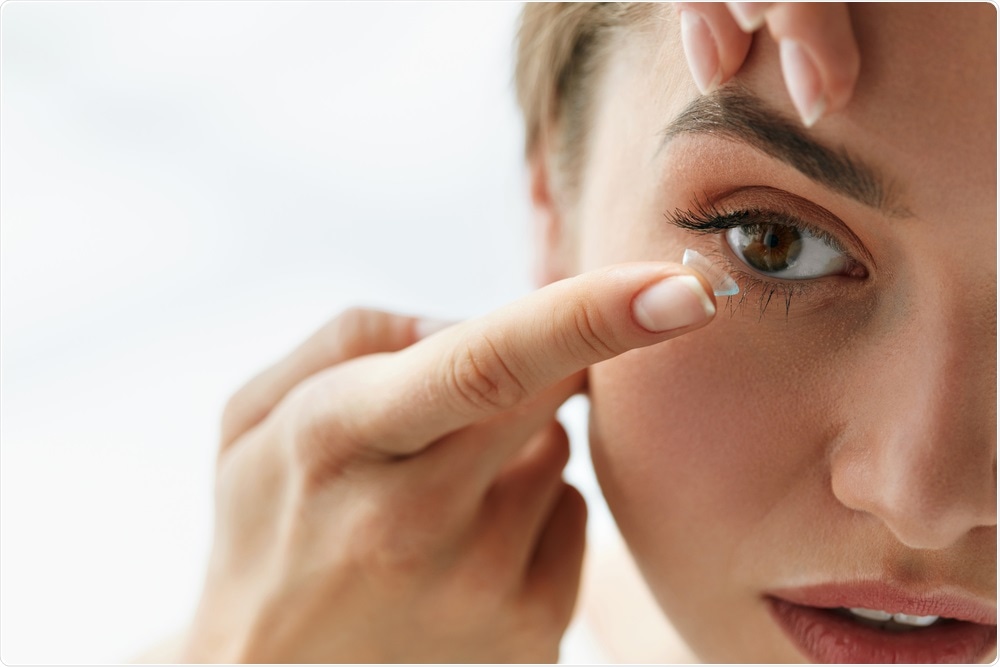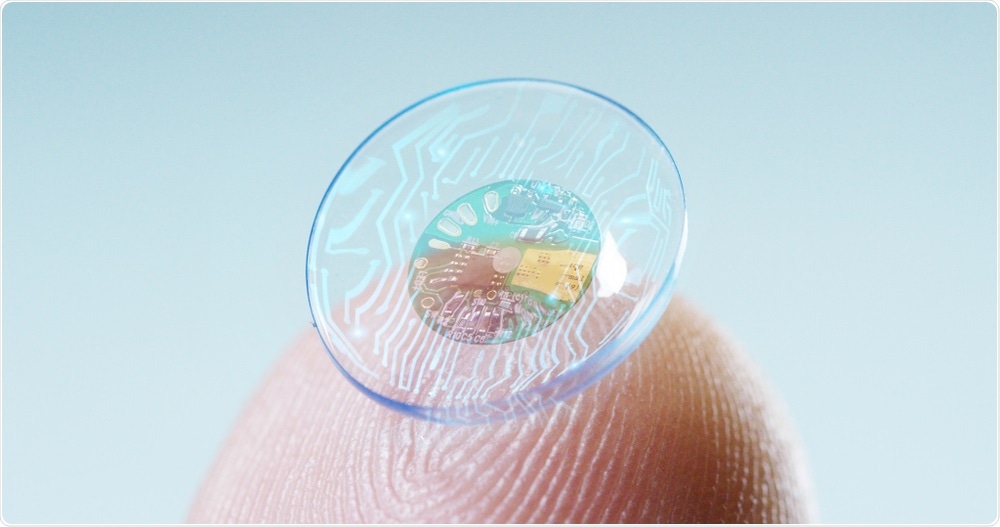An interview with Brendan O'Brien from Vision Direct, discussing everything from the types of contact lenses available, to preventing 'dry eye', and the future potential of smart lenses!
Why is it important to look after your eyesight? Is there any way to slow vision loss?
It is very important to look after your eyesight. Why? Because we rely on sight as our dominant sense. This is reflected in how complicated and delicate our eyes are relative to animals. For instance, a dog’s vision is not nearly as sophisticated as humans, but their sense of smell is significantly better.
 Image Credit: puhhha / Shutterstock
Image Credit: puhhha / Shutterstock
There are a number of potential interventions to reduce the need for vision correction. Contact lenses (both soft and hard), specific glasses and even eye drops have been suggested, but these tend to have varying degrees of success.
One practical suggestion is to advise our kids to put their devices away. Data from many studies demonstrate that the high level of near work associated with devise usage can increase myopia.
It is also thought that myopia progression may be caused by light levels, so it’s a good idea to get kids outside to play - which keeps them away from their devices for a while!
What are the main types of contact lenses and how do they differ?
Contact lenses can be broken down into two main categories; how long they’re worn for, and the eye condition they correct.
How long a lens is worn for is referred to as the wearing pattern. These include daily, monthly, two weekly and extended wear. Each wearing pattern has a different attraction.
 Image Credit: Africa Studio / Shutterstock
Image Credit: Africa Studio / Shutterstock
Daily lenses are becoming increasingly popular for the convenience and hygiene they provide. Monthly lenses are valued because the same two lenses can be worn for 30 consecutive days.
Two weekly lenses are seen as the middle ground between daily and monthly lenses. Finally, extended wear lenses can even be left in overnight during sleep.
These are especially useful for people who struggle to put their lenses in and out. However, always check with your eye care expert before selecting extended wear lenses.
Specialist lenses to correct eye conditions include multifocal lenses and toric lenses.
If you have been diagnosed with presbyopia (a condition more prevalent in the over 40 age bracket) and you find you need to hold a menu at arm’s length to read clearly, your optician may suggest a multifocal lens. This lens will help you focus on objects at varying distances with ease.
How can contact lens wearers prevent Contact Lens-Induced Dry Eye (CLIDE)?
Most contact lens wearers will be familiar with dry eye, or contact lens-induced dry eye (CLIDE), as it is known. CLIDE can leave lens wearer’s eyes feeling dry, irritated and fatigued.
Luckily there are methods to fight back. Taking regular breaks from lenses can help. We recommend that lens users also have one free lens day a week, if possible.
The water content of lenses may also have some impact on how dry wearers eyes become. A lower water content lens may help towards reducing CLIDE. The reason being is that high water content lenses tend to absorb moisture from the eye via osmosis as they lose water during wear.
Wearing silicone hydrogel lenses may also reduce the symptoms of CLIDE. This is because silicone allows more oxygen to flow to the eye, which is essential for producing healthy natural tears while also maintaining a low water content.
It’s worth consulting your optician to see if a new prescription might help you battle dry eyes.
What advice would you give to somebody thinking of trying contact lenses for the first time?
It’s important to get an eye test to determine if your eyes are suitable for contact lenses.
If your optician recommends contact lenses to you, the next step is to be clear on what you want your lenses for. This will allow your optician to suggest the best option that really works for your eyes.
Your optician should also suggest appropriate contact lens care products including solutions and eye drops.
If you find the initial lenses your optician selects for you to be uncomfortable, don’t be afraid to experiment with different wearing patterns, lens material, and brands - after further consultation with your eye care expert. Keep trying new lenses until you find a lens you can wear all day without discomfort.
How To Put In Contacts (2015)
How are contact lenses going to change over the next fifty years?
In the shorter-term, contact lenses will become more comfortable through the development of thinner lens materials.
This means lenses will be barely noticeable during wear. With higher comfort levels we could well see more people moving away from glasses to embrace contact lenses.
On to something more in the realms of sci-fi; in 2014, Google launched plans for a contact lens which could measure the glucose level in diabetic’s tears.
While this lens has not come to market, it’s certainly an exciting prospect for anyone with diabetes! So, the future may well bring dual-purpose contact lenses.
Further, in the future, we could possibly see smart contact lenses. Similar to the idea of smart glasses, smart lenses would be able to take photos and record videos.
Companies like Sony and Samsung are already working on smart lenses, and who knows maybe in the future we’d be able to surf the internet with our contact lenses?
 Image Credit: HQuality / Shutterstock
Image Credit: HQuality / Shutterstock
How are Vision Direct getting involved in Eye Health Week?
We always aim to promote the importance of eye health to our customers as well as getting involved in various charitable initiatives throughout the year.
As Vision Direct is also part of the Essilor group, there are wider initiatives that we work towards in order to the group’s mission of improving life by improving sight. One initiative, in particular, would be the Essilor Adopt A School program in collaboration with Vision Aid Overseas.
Where can readers find more information?
We have loads of great eye health content on our site, answering any questions you may have about vision. Our eye care centre and blog are both full of informative resources to learn more about contact lenses and eye health.
About Brendan O'Brien

Brendan O'Brien has been in the Optical industry for more than 20 years. He graduated from the University of Manchester with a Bachelor of Science degree in Ophthalmic Optics and Optometry and is also MCOptom certified.
Brendan gained vast experience as an optometrist at various well known high street opticians from Dolland & Aitchinson to Boots and Specsavers, where he took on the prestigious position of Ophthalmic Director.
In 2002, Brendan joined the dot-com bubble, founding GetLenses.co.uk, with the aim to offer quality lenses at a low cost, delivered quickly. Get lenses acquired Vision Direct in 2014 and Brendan is now the COO of Vision Direct where he is highly involved in business development.